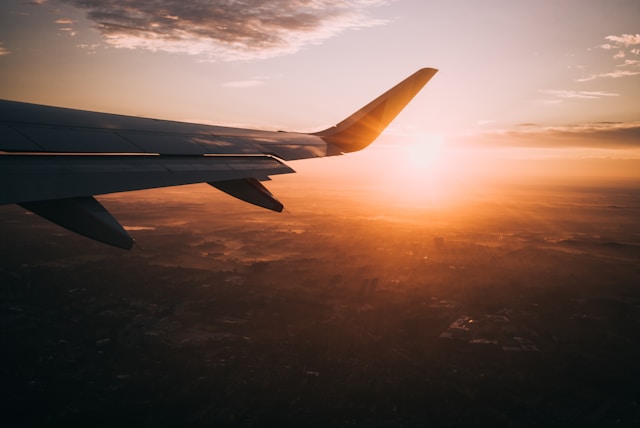Traveling long-term can be incredibly rewarding, but it also poses challenges to your mental well-being. Whether you’re a digital nomad or a perpetual adventurer, it’s essential to maintain good mental health. Here are some practical tips to help you stay grounded and happy on the road, complete with expert insights and advice.
Create a Routine
Establishing a routine, even on the go, provides a sense of stability. Maintaining consistent sleep schedules, regular exercise, and moments for mindfulness can help. As noted by Matador Network, “incorporating activities like morning meditation or yoga can help manage stress and anxiety” (Matador Network). Even simple routines, like journaling over coffee or doing a brief morning workout, can create a sense of normalcy.
1. Start with a Morning Ritual
Establishing a consistent morning routine sets a positive tone for the rest of the day. Whether it’s a quick workout, meditation, or simply enjoying a cup of coffee while journaling, having a fixed start to your day can create a sense of normalcy. Try to have a similar routine each morning, whether it’s journaling over coffee or doing a few minutes of stretching.
2. Incorporate Exercise
Physical activity is vital for both mental and physical health. Schedule regular exercise sessions, such as running, yoga, or even finding a local gym. Exercise not only helps maintain fitness but also reduces stress and improves mood. Joining local classes or Meetups for activities can also provide social interaction and motivation.
3. Set Regular Meal Times
Eating at consistent times helps regulate your body’s internal clock and supports digestive health. While traveling, it can be tempting to snack irregularly or skip meals. Try to have at least one meal at the same time each day, whether it’s breakfast, lunch, or dinner. This routine can also help you maintain a balanced diet and avoid unhealthy eating habits.
4. Allocate Time for Work or Hobbies
If you’re a digital nomad or have specific work commitments, set aside dedicated time for work. This helps in separating work from leisure, ensuring you stay productive without feeling overwhelmed. For non-work-related activities, dedicate time to hobbies or personal projects. This can provide a sense of accomplishment and a creative outlet.
5. Prioritize Sleep
Maintaining a consistent sleep schedule is crucial for mental and physical health. Try to go to bed and wake up at the same time every day, even on weekends. This consistency helps regulate your body’s internal clock and improves the quality of your sleep. Normalizing your sleep schedule can help your body feel more natural even while moving around.
6. Plan Downtime and Relaxation
Incorporate downtime into your daily routine to relax and recharge. This could be in the form of reading, listening to music, or simply enjoying quiet time. Incorporating elements of wellness, such as meditation or gratitude journaling, can be beneficial.
7. Stay Flexible
While it’s essential to have a routine, it’s equally important to stay flexible. Travel plans can change unexpectedly, so being adaptable will help you maintain your routine without stress. If something disrupts your schedule, try to get back on track as soon as possible.

Stay Connected with Loved Ones
Feelings of isolation can creep in during long-term travel. Regularly scheduling video calls with friends and family can help mitigate these feelings. According to Matador Network, “Platforms like Skype, Facetime, and Google Chat make it easier to stay connected, offering comfort and support from familiar voices”. This connection helps alleviate homesickness and provides a mental boost, ensuring you feel less detached from your usual life.
Practice Self-Care
Self-care is essential for maintaining mental health. Whether it’s indulging in a spa day or cooking a familiar meal, taking time for yourself is crucial. Adventures in Sunsets highlights the importance of eating familiar food and occasionally stepping back from local cuisines to feel more at home. They suggest, “Simply getting a place with a kitchen and cooking your own meal is one of the greatest feelings after being on the road” (Adventures & Sunsets).
Engage in Mindfulness and Meditation
Mindfulness practices, such as meditation, significantly reduce stress levels. Using apps like Headspace or Pacifica can offer guided sessions tailored for travelers. Meditation has been proven to lower stress, fight depression, and stave off anxiety. The structure and guidance these apps provide can be especially helpful when you’re in unfamiliar environments.
Incorporating mindfulness and meditation into your travel routine can significantly enhance your mental well-being. These practices help you stay present, reduce stress, and maintain a sense of calm. Here’s how to integrate them into your daily life while traveling:
- Use Meditation Apps: Apps like Headspace and Pacifica offer guided meditation sessions, making it easy to practice mindfulness anywhere. These sessions can help you focus, relax, and manage anxiety.
- Start with Deep Breathing: Simple breathing exercises can be done anytime, anywhere. Just a few minutes of deep, mindful breathing can calm your mind and body.
- Mindful Eating: Pay attention to the flavors, textures, and aromas of your food. This practice not only enhances your dining experience but also keeps you grounded in the present moment.
- Nature Meditation: Spend time in nature and observe your surroundings. Whether it’s a beach, forest, or mountain, let nature’s beauty help you feel connected and at peace.
- Daily Gratitude: Keep a gratitude journal to note down things you’re thankful for. This practice shifts your focus to positive aspects of your journey, fostering a more optimistic mindset.

Connect with Fellow Travelers
While immersing yourself in local cultures is enriching, connecting with fellow travelers or expats can also be comforting. Adventures in Sunsets suggests finding a balance between local experiences and interactions with other travelers. Sometimes, connecting with other travelers who understand your lifestyle can be incredibly comforting. Whether through Couchsurfing meetups or apps like Bumble and Tinder, making new friends on the road can provide a support system.
Explore Nature
Spending time in nature can ground you and improve your mood. A simple walk in a park, a hike in the mountains, or enjoying a sunset can help you reset and feel more connected. Activities in nature can provide a reset, helping you feel more connected and less overwhelmed.
Seek Professional Help if Needed
Despite your best efforts, managing mental health can sometimes be challenging. Don’t hesitate to seek professional help, whether through online therapy or local mental health services. One Step 4Ward emphasizes the importance of “maintaining consistent emotional support, even while traveling” (OneStep4Ward). Professional guidance can offer additional tools and coping mechanisms tailored to your specific situation.
By incorporating these practices into your travel routine, you can better manage the stresses and challenges of long-term travel. Remember, taking care of your mental health is just as important as exploring new places and cultures. Stay connected, practice mindfulness, and don’t forget to enjoy the journey.









Leave a Reply